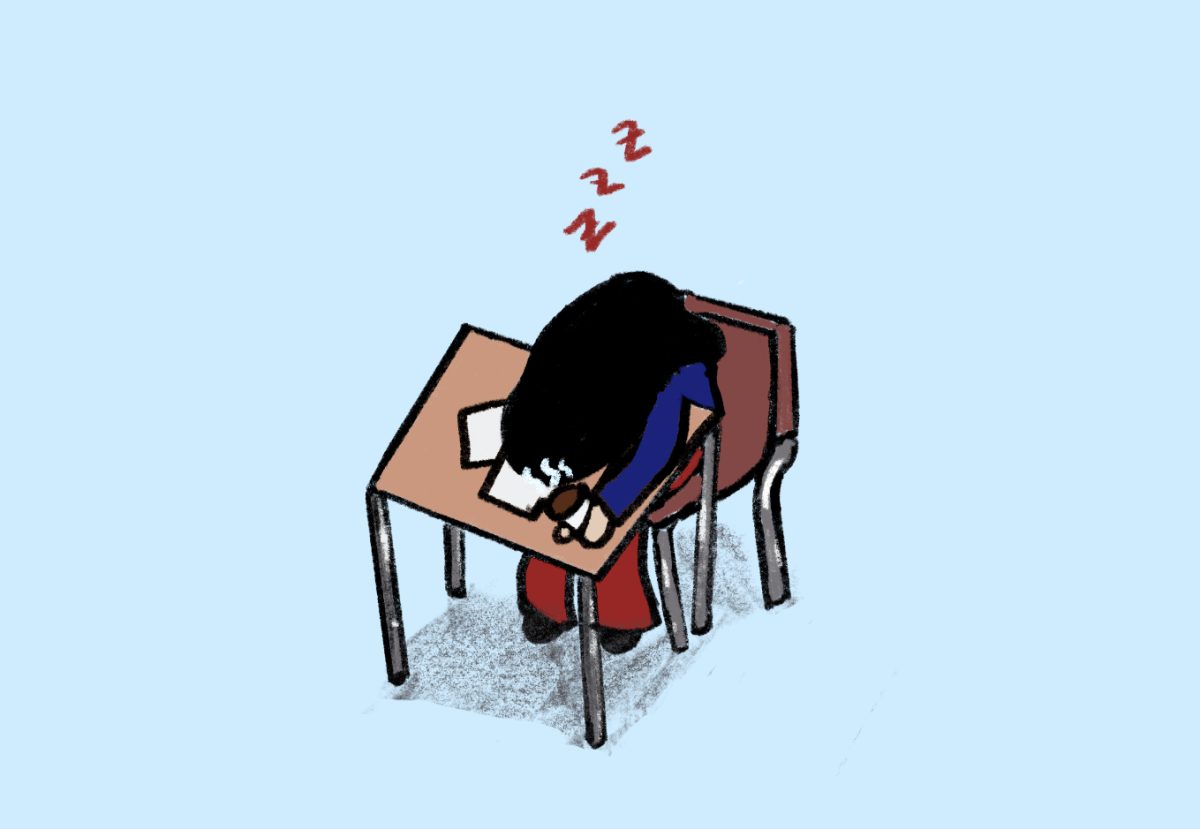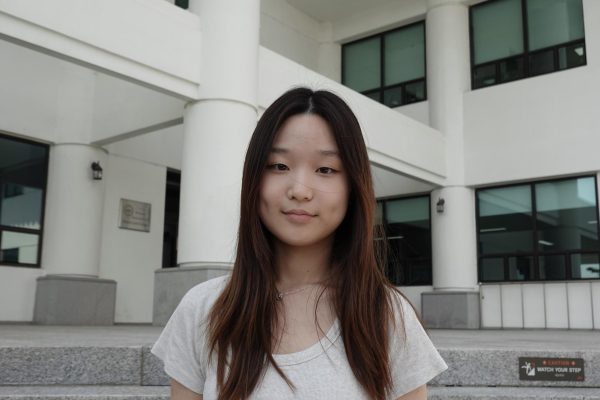As we progress through high school, increasing pressure placed on summative results and club responsibilities cause an increase in sleepless nights. Many students would consider themselves to be lucky if they manage to get some sleep before the sun starts showing through the blinds.
In a school-wide survey, students of varying grades responded to the following questions that reflected this unhealthy cycle. When asked what time they usually go to sleep on a school night, underclassmen reported an average of 11-12 a.m. as their bedtime while upperclassmen reported more concerning sleep schedules, responses of bedtime varying anywhere from 1-4 a.m.
When asked how many times they felt the need to stay up late, anytime around 11p.m.-6 a.m. or pull an all-nighter in one week, underclassmen reported zero to one while upperclassmen reported two to four times of staying up late.
Having experienced more than half of high school, I have experienced weeks where I have patted myself on the back for maintaining what is considered a “healthy” sleeping regimen by sleeping before 1 a.m., and yet, would find myself begrudgingly staying up late, or early, enough to see the sun rise.
But I will not reiterate the age-old advice that sleeping early is the best remedy for sleep-deprivation. . The truth is, students already know about those benefits from the countless reminders from adults. There are many instances when teachers have disappointedly remarked that students look tired and disassociated from their lectures, urging them to sleep earlier.
What these authority figures may not realize is that most students are acutely aware of the benefits of sleep. However, students desire academic success as much as, or even more, than healthy sleep schedules. If this entails that they must pull an all-nighter or two to feel prepared for a heavily-weighted summative, so be it. After all, the satisfaction of the PowerSchool notification announcing you received a perfect score on a summative far outweighs the seeming short-term relief from a sleep that sacrificed your grade.
Although cliche, it is unfortunately true that there is simply not enough time in a day for most students to be able to balance both their academic success and healthy sleep schedules.
We can acknowledge that time management can play into helping alleviate some of this burden and sleep deprivation off of our shoulders, but old habits are hard to fix, and even harder when you are swamped with work all day, every day.
In essence, sleep deprivation is inevitable, but that does not mean productivity has to be deprived as well. I have experimented with the three methods suggested by respondents to the questionnaire to function productively after a night of little to no sleep.
According to an upperclassman who regularly gets around four to five hours of sleep and usually pulls two all-nighters in a week, their best way to stay awake the next day is to drink two cups of coffee and take notes in class.
Taking notes, especially if the classes throughout your day are lecture-based, forces active engagement in your mind, as well as your body, and keeps you functioning properly in what is the most important part of your school day. When I tried this method, I drank a coffee during office hours and another after school. Although this intake of caffeine is not recommended for every day, I found it useful for this particular week, as I had multiple summatives every other day. However, after one day of an increase in caffeine, I felt extremely worn out the next day, which was accompanied by a pounding headache. This method is not sustainable long-term.
Another common recommendation is to scroll through short-form media such as Instagram reels or TikTok during breaks from studying as a way to keep your mind engaged and activated. However, I found this to be counterproductive as it perpetuated procrastination. I was the one in charge of ending the cycle of shorts and reels, leading me to take more prolonged breaks than I would normally have. If there is a tight deadline to meet, I would instead suggest looking toward YouTube videos as an alternative, less addictive, source of entertainment during breaks, as short form media tends to distract students more easily.
Out of these methods, I personally favored and will continue to use the method of cold showers. When you are hit with a freezing stream of water in the morning, it ensures that you are awake enough to retain all of the information studied over the night. I found myself more energized and positive than usual throughout the day. Compared to the day where I took cups of coffee in intervals, I believe this method is more sustainable for at least a week.
Although the effectiveness of these methods may vary from person to person, one lesson learned from these long days of experimentation is that sleep ends up catching up with you, one way or another. On the last day of testing, I found myself fully asleep at 8 p.m., missing out on the work I had due for the next day.
Indeed, it is imperative for us to maintain healthy sleep schedules, but there are only going to be more responsibilities and overlapping deadlines as we grow older. Finding systems that help us to be the most productive and energized we can be is more realistic than expecting time to slow down.


